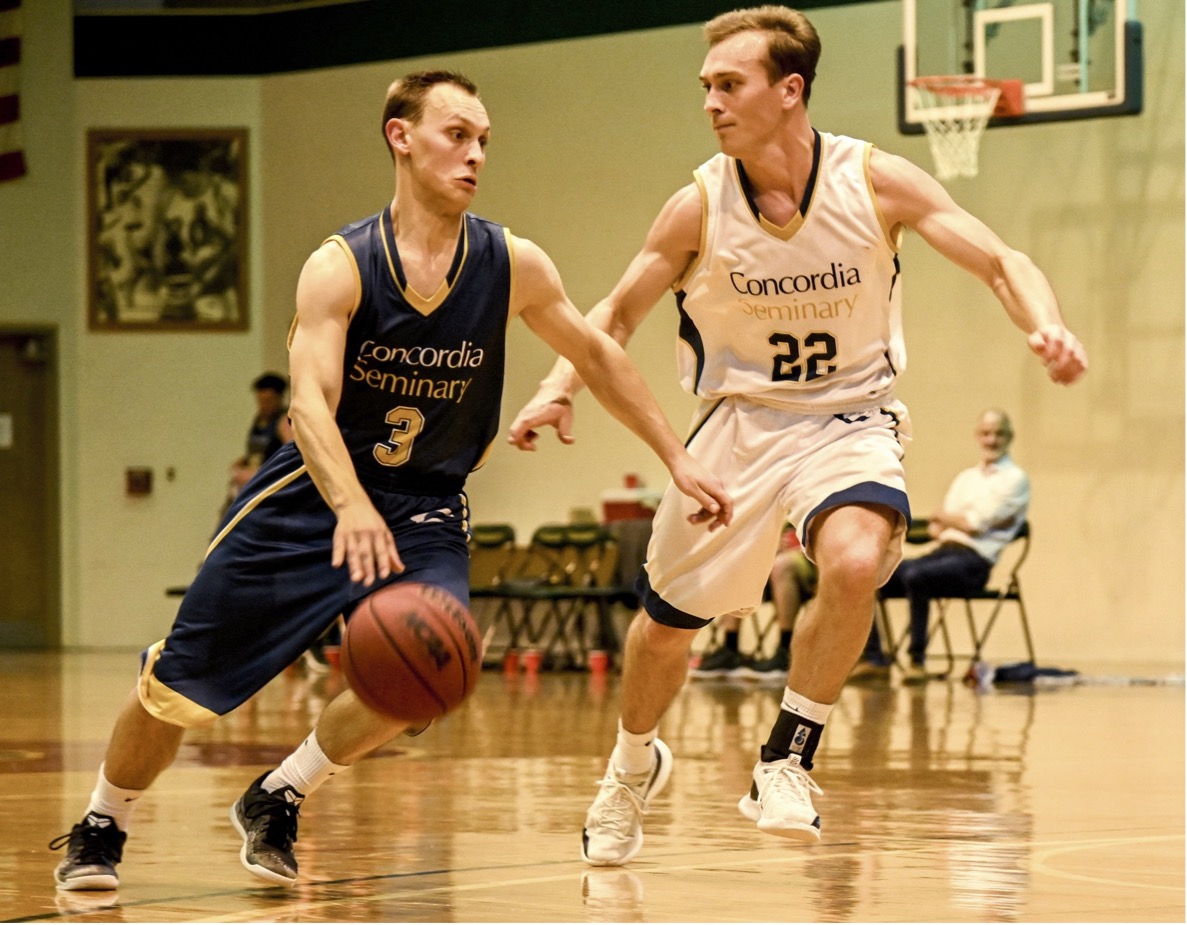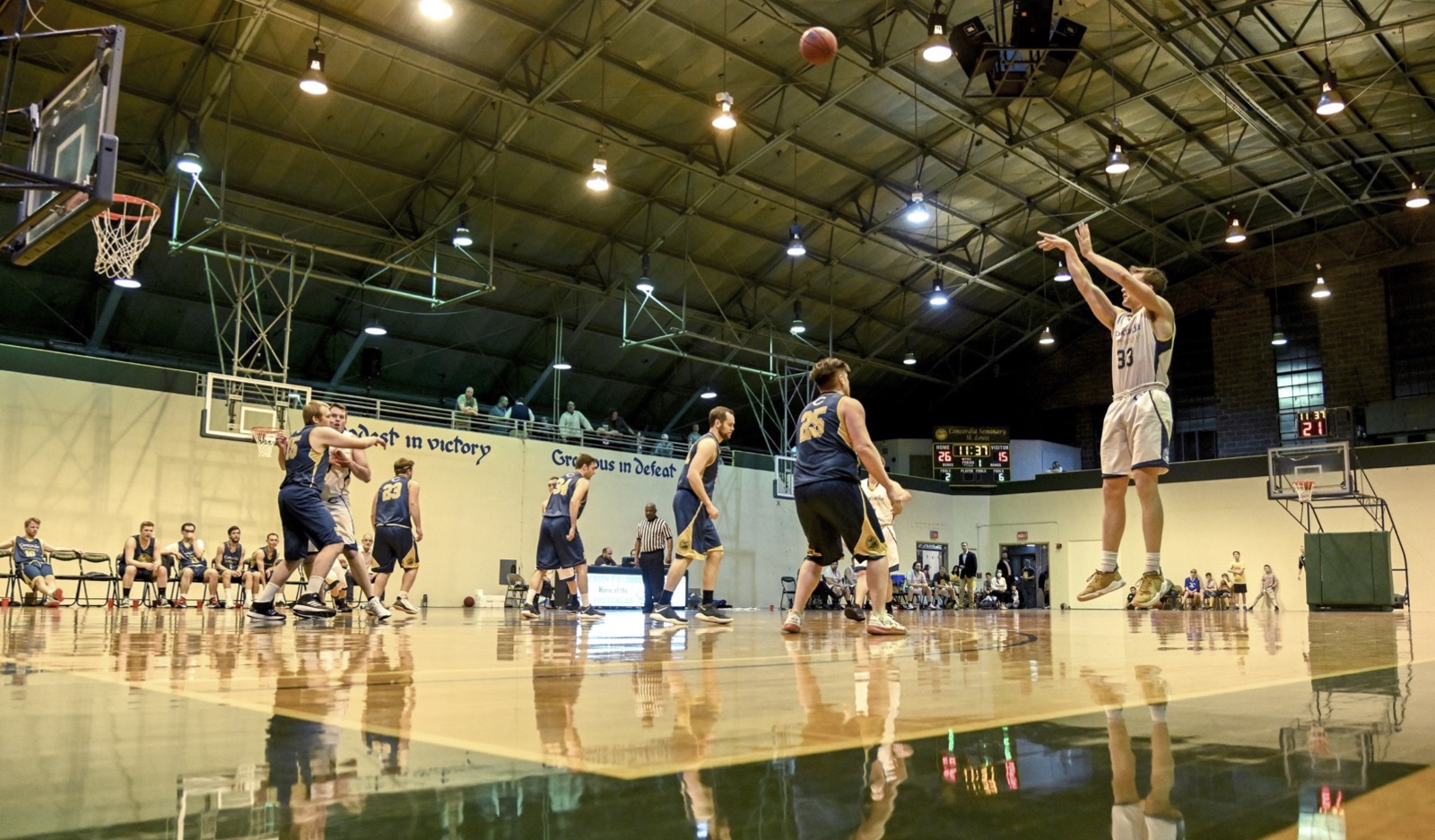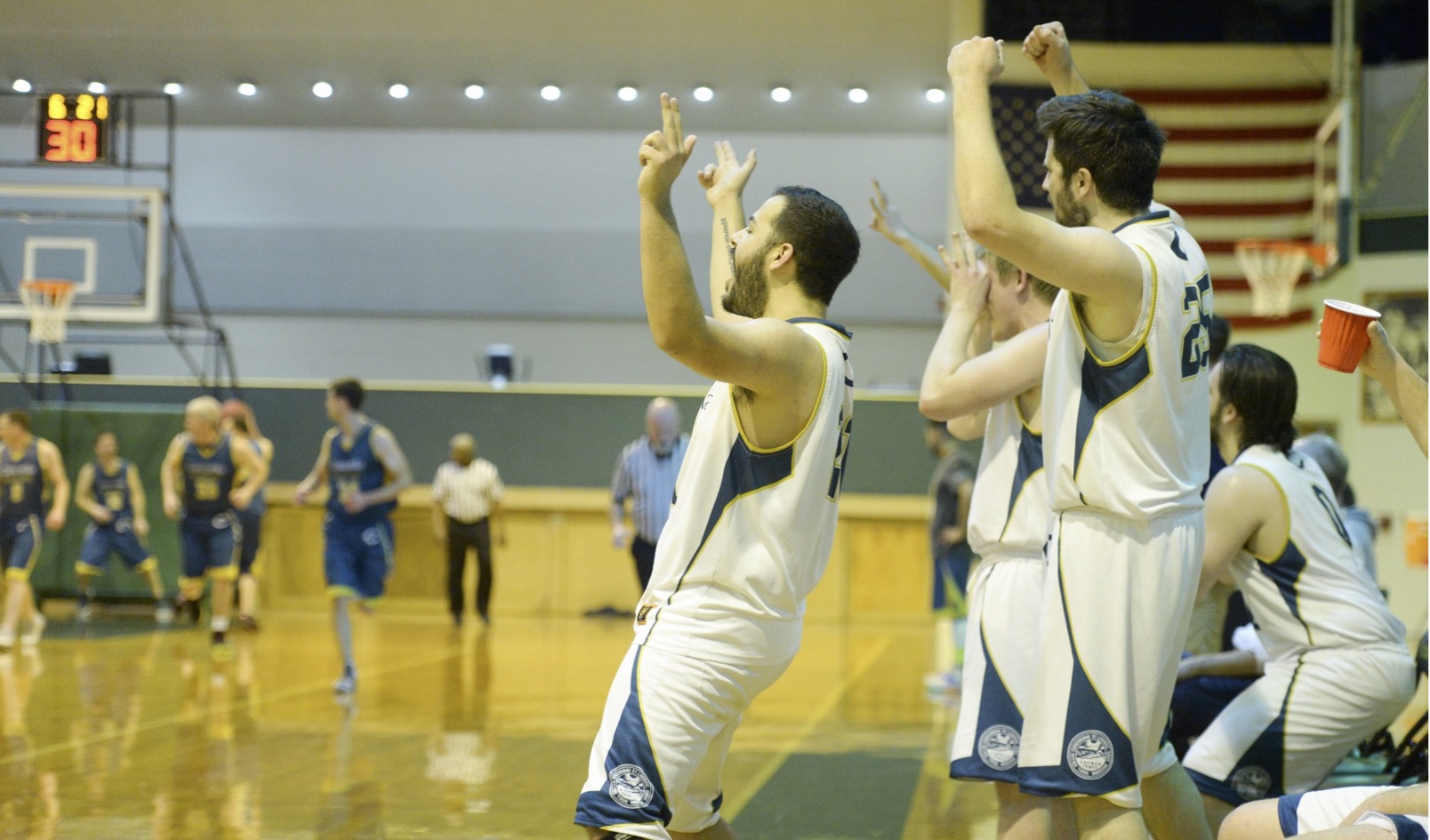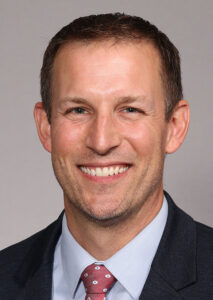Pastors and basketball are on my mind these days. Last month Concordia Seminary held its fifth annual “Hoops for Hope” alumni event. Twenty former “Preachers” (yes, that’s our mascot) laced up their sneakers and stepped back onto the hardwood at Eldon Pederson Fieldhouse. With more than twenty players on the current squad, we divided the teams and played two games. Both games put seminarians against clergy. Future pastors against current pastors. Old men against, well, older men. (For the record, the current team won both games. But they were close.)
Then there’s March Madness. Along with the Superbowl, the Masters, and the World Series, the annual 64-team college basketball tournament is a high holiday on the American calendar. Just follow the money. Last year NCAA revenue reached $1.16 billion. In 2020, it lost $800 million when it canceled March Madness. But the money in college sports is only the beginning. USA Today recently reported that the youth sports industry constitutes a $19.2 billion market. One research organization forecasts that this will climb to $77 billion by 2026. Which makes sense, of course. How will Johnny and Jane get full-ride scholarships if they don’t play year-round traveling sports before learning to ride a bike?
The dominant position of athletic competition in our culture is undeniable. As much as any other cultural trend, this calls for theological reflection.
But where should we begin? Theological reflection on sports could go many directions. We could observe the liturgical nature of games and seasons and fan participation. We could lament the fact that many Saturdays and Sundays witness fuller football stadiums than sanctuaries. We could chastise theologians of glory who cross themselves after homeruns but not after strikeouts. We could wonder about the compatibility of competition with the call to Christian love and service. Reflection along these lines easily (and often) goes negative—especially among those who don’t enjoy sports themselves.
But it doesn’t have to. When kept in proper perspective, sports (especially team sports) can be seen in a more positive light. This theological reflection on sports as gift is an example. So also is this review of several recent books on the topic.

I’m writing this post as one who cares deeply about the formation of pastors. That’s why I teach at a seminary. It’s also why I coach the seminary’s basketball team. I’m convinced that a good pastor needs to be a certain type of person. Which means they need to be formed for ministry as much as they need to be informed. After playing (and coaching) basketball for many years, I’ve concluded that playing on a basketball team helps students cultivate the kinds of traits that are necessary to be a faithful pastor. What are those traits? There are many. But for now, I’ll focus on four. A good pastor, like a good basketball player, (1) works hard, (2) embodies humility, (3) plays well with others, and (4) has a joyful spirit.
He works hard.
My son’s high school basketball team held their concluding banquet last week. The coach repeated a common platitude: “The only place success comes before work is in the dictionary.” Yes, it’s trite. But there’s a reason coaches repeat it. Anyone who has played sports knows you have to put in the effort—running, lifting, doing drills. Natural athleticism only gets you so far. And they don’t simply hand out trophies. (They didn’t when I was kid, at least.) You have to work hard to do well.
Same goes for pastoral ministry. Concordia Seminary is a graduate school. Completing the program isn’t easy. It requires serious study of the Scriptures, often in the original languages. It demands careful and thoughtful systematic formulation. It necessitates close attention to the congregations we serve and the culture in which we live. It includes immersion in historical texts and times and controversies. And that’s to say nothing of the hard work that awaits every pastor after ordination!
He embodies humility.
Eldon Pederson Fieldhouse is a special place for many reasons. In addition to the hallowed halls displaying pictures from 73 years of seminary athletics, there’s a saying on the wall in the gym that every Preacher knows well: “Modest in victory. Gracious in defeat.” Decades of seminarians have played beneath those words. Through loss and injury, they have been humbled on that court. They have learned firsthand that pride goes before the fall. This lesson repeats itself every year during March Madness as top seeds fall to the underdog.
Good pastors embody humility, too. Not only because they know their own failings, but because they know their place. Despite temptations to think otherwise, they know they are not in charge. They also recognize their limitations. Their knowledge of God is always dim on this earth (1 Cor 13:12). Which makes the old rule so true: “Wenn es zur Theologie kommt, ein bischen Bescheidenheit gehört dazu.” (“When it comes to theology”—and pastoral ministry, I would add—”a little humility is appropriate.”) A good pastor must be comfortable admitting his mistakes and working to improve them. He must be open to correction and continuing education. He must follow his Lord by performing menial tasks—like washing feet—as he considers others more significant than himself.
He plays well with others.
Playing on a team forces you to work well with others. It requires that you know your role and respect the roles of others. This doesn’t mean that you shouldn’t shoot the ball. Indeed, if that’s your role, you need to score. Shooting guards must shoot as much as point guards must dribble. Benchwarmers must encourage as much as big guys must rebound. Like the body of Christ, no one can do everything. Everyone has a role. If a player tries to do everything, he brings down himself and his team.

Good pastors know this, too. They are ministers of the word. They preach the gospel. They teach the faith. They administer the sacraments. That’s their role. But there are other important things they do NOT do. The church also needs musicians, IT experts, Sunday School teachers, elders, and counters. Outside the church, we need normal Christians to use their gifts in so many other essential professions. Now we’re talking vocation. The job of a pastor is one among many necessary vocations. He needs their faithful Christian leadership and service as much as they need his.
He has a joyful spirit.
One of the reasons I love coaching Preacher basketball is that guys play for the right reasons. They don’t play for glory. They don’t play for money. They don’t play to win championships. They play for fun. They enjoy the exercise and the brotherhood and the friendly competition. Basketball, after all, is a game. It is a First Article gift of the God who created us with bodies and energy and the ability to devise team sports.

There is joy in pastoral ministry, too. It is accompanied by sorrow, to be sure. Jeremiah comes to mind. But Paul’s encouragement to rejoice in the Lord always (Phil 4:4) isn’t a pipe dream. No matter how dark life or ministry may get, no matter how weary servants of the Word may grow, Christ is risen! Which is why Christians (and especially pastors) always have reason to rejoice.
Hard work, humility, the ability to collaborate with others, and a joyful spirit. These are the qualities that make a good pastor. They also make a good basketball player.
I called this post, “You Can Tell a Lot about a Pastor by the Way He Plays Basketball.” Which raises a question. What does the 2021-2022 Concordia Seminary Preacher basketball team tell us about how they will serve as pastors?
I can tell you they worked hard, and they worked together. I’ve never played with or coached a more selfless group of men. We could use more of that among our pastors.
I can tell you they played with humility and joy. Like the alumni who played against them, they didn’t take themselves too seriously. They enjoyed the game and gave thanks to God for it.
I can tell you that they kept their priorities straight. Class and family always came first. We began every game with prayer in the locker room, and we ended every game with prayer at midcourt.
I can tell you that, if this year’s team is any indication of what lies ahead for the ministerium of the LCMS, we are in good shape. These guys are going to make good pastors.
I can tell by the way they play basketball.



Leave a Reply
You must be logged in to post a comment.